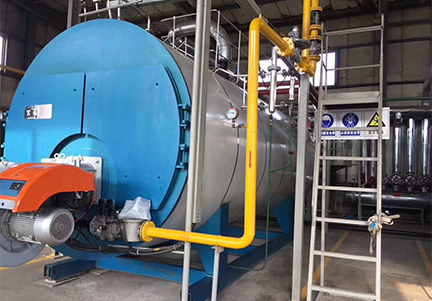Guidelines for Efficient Boiler Installation and Maintenance Practices
Boiler Installation A Comprehensive Guide
Boiler installation is a vital aspect of maintaining a comfortable and efficient heating system in homes and commercial buildings. Whether you're upgrading an old system or installing a new one, proper installation is crucial to ensure safety, efficiency, and longevity. This article will guide you through the essential steps and considerations in boiler installation.
Understanding the Basics
A boiler is a closed vessel that heats water and produces steam or hot water for heating and other applications. There are various types of boilers, including combi, system, and regular models, each catering to different heating needs. Before installation, it's important to determine the type that best fits your requirements, as this will affect both efficiency and function.
Choosing the Right Boiler
When selecting a boiler, consider factors such as the size of your property, your heating requirements, and energy efficiency ratings. A qualified heating engineer can help assess your needs and recommend the appropriate boiler. Modern boilers often come with high energy efficiency ratings, which can help reduce energy bills and decrease environmental impact.
Planning the Installation
Prior to installation, proper planning is essential. This phase includes evaluating the location of the boiler, ensuring adequate space for maintenance and repair, and determining the necessary pipework and electrical connections. The chosen location should provide easy access and meet local building regulations and codes.
Hiring a Professional Installer
While some may consider DIY installation to save costs, hiring a professional installer is highly recommended. Certified technicians possess the expertise and tools necessary to ensure the boiler is installed safely and efficiently. They will also be familiar with local regulations and can handle any permits required for installation.
boiler installation

The Installation Process
1. Removal of the Old Boiler If you are replacing an existing boiler, the first step is safely removing it. This involves disconnecting utilities, draining the system, and ensuring all local regulations are followed.
2. Preparing the Site Once the old boiler is removed, the installation site should be prepared. This includes ensuring the area is clean, verifying that all necessary plumbing and electrical work is in place, and making any necessary modifications to accommodate the new boiler.
3. Installing the New Boiler The new boiler is then positioned in the prepared site. The installer will connect all required pipes, ensuring they are securely fastened to prevent leaks. Electrical connections must also be made, ensuring that all components are equipped with appropriate safety measures.
4. Testing the System After installation, the system must be thoroughly tested. This includes checking for air leaks, verifying pressure levels, and ensuring that safety devices such as pressure relief valves function correctly. The installer will also check the thermostat settings and confirm that the boiler is heating efficiently.
5. Final Inspection and Documentation A final inspection may be necessary to ensure that the installation complies with all local regulations and standards. Homeowners should request documentation, including warranties and guides for operating and maintaining the boiler.
Maintenance Post-Installation
Once the boiler is installed, regular maintenance is essential to ensure longevity and efficiency. Schedule annual check-ups with a qualified technician to inspect the system, perform necessary repairs, and flush the system to remove any mineral deposits. This proactive approach can prevent costly repairs and extend the life of your boiler.
Conclusion
Boiler installation is a complex process that requires careful planning and execution. By understanding the types of boilers available, the importance of hiring a professional, and the steps involved in installation, homeowners can ensure a safe and efficient heating system. Regular maintenance will keep your boiler running smoothly for years to come, providing comfort and warmth in your home or business.
-
Thermal Oil Boiler for Plywood Industry Efficient & Reliable SupplierNewsApr.29,2025
-
High-Efficiency Condensing Hot Water Boilers Supplier & FactoryNewsApr.29,2025
-
Vertical Thermal Oil Boilers High-Efficiency Industrial Heating SolutionsNewsApr.28,2025
-
High-Efficiency Gas Hot Water Boiler Energy-Saving & ReliableNewsApr.28,2025
-
Burnham Independence BTU Steam Boiler NG High-Efficiency SupplierNewsApr.28,2025
-
Steam Boiler Factory High-Efficiency & Custom Industrial SolutionsNewsApr.28,2025

